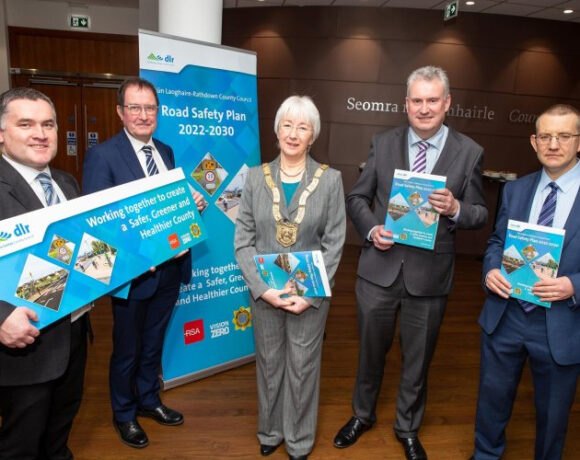Council Journal would like to present the final episode of our Women in Business podcast series, featuring Padraic McElwee of the Irish Local Enterprise Office (LEO).
The very first Women in Business Series is proudly sponsored by the Irish Local Enterprise Office.
As entrepreneurialism becomes ever-more popular, and small businesses flourish in a post-pandemic world, we wanted to highlight some of the amazing businesses that are female led and championing across a variety of areas in 2023.
The series featured a list of female entrepreneurs were cherry picked and included inspiring and tenacious women that through their own determination, and in some cases with LEO’s help, created businesses and start-ups that will without a doubt, change the world for the better.
From cutting-edge technology and voice recognition to luxury couture design and medical grade healthcare devices, these women have harnessed and honed their skills to bring us some unique and fantastic products and services.
These talented and creative women are our top choice for business leaders in 2023 and the spaces that you need to watch.
The following advice from Padraic can also help you to follow in their footsteps and take your own journey into the world of business too. Read what Padraic had to say to us below or listen to the full conversation on Spotify or Soundcloud!
What is LEO?
For those who don’t know, LEO came into existence in 2014 as part of the Local Government Reform Act and they are part of every local authority around the country.
There are 31 branches across the country and the purpose of LEO is to help early stage entrepreneurs and local businesses to get up and running, fundamentally creating employment across Ireland.
How can people apply to LEO for help as a young entrepreneur?
The first step is to pick up the phone and contact us or email. People don’t realise the amount of support that exists for them when they want to start a business. Some may have an idea in the early stages, some may be a bit further on so the first step is assessing where they are in the set up stage.
Our role is that of a facilitator. We don’t create the business, our job is to try and make it easy for the entrepreneur on that journey. Believe it or not, we will get a significant amount of people signing up for our six-week start your own business course. That course is the nuts and bolts of running a business. Statistically about 45 per cent of people who take that course don’t go on to set up a business and that’s actually a positive thing. The last thing we want is someone taking that leap and then suddenly realising that it’s not for them.
What type of supports are available?
It’s important to know that we can help you at any stage of the business. So for example, if you know what your idea is, that’s great and you could take the six-week course but if not, we could assign you a mentor who will really help you tease out what kind your business idea is. In a sense, the mentor is like a mirror. They help the entrepreneur to think through any issues you might have. Essentially, when you’re starting a business, you have to ask yourself, ‘What problem am I solving? Why would someone buy from me? Will it give me enough money to put food on my table?’ It’s as basic as that. Sometimes we see young entrepreneurs who are very enthusiastic, which is great! But equally, we need to be able to answer these questions and bring a sense of groundedness and reality to the business.
Is it true that about 95 per cent of businesses fail in the first five years?
It is a high statistic yes but there’s a number of factors underneath it. If you’re starting a business, let’s be honest, you really are 24/7 and that’s the reality. Enthusiasm will get you through the first 12 months because you’re just really pumped up and you want to succeed. But then reality starts to hit, and it can become a bit of a hard slog because that initial burst of energy, that initial acquisition of customers, that can start to stagnate a little bit and you’ve got to start thinking about how you can overcome those obstacles. That’s where we step in and try to bring support like mentoring, upskilling, training or indeed, financial support. We do grants up to 50 per cent funding and that can be quite significant.













